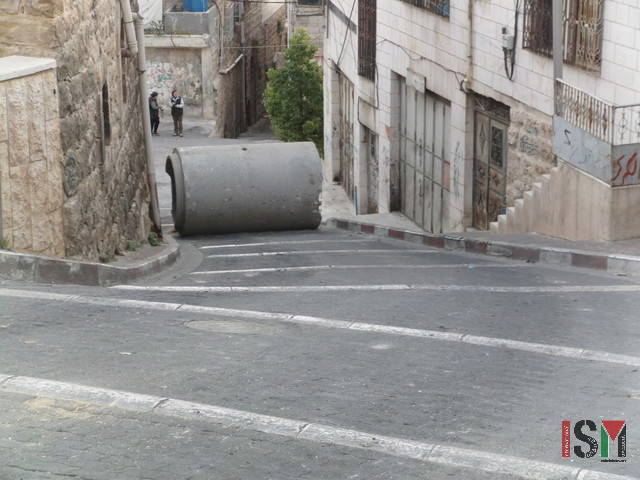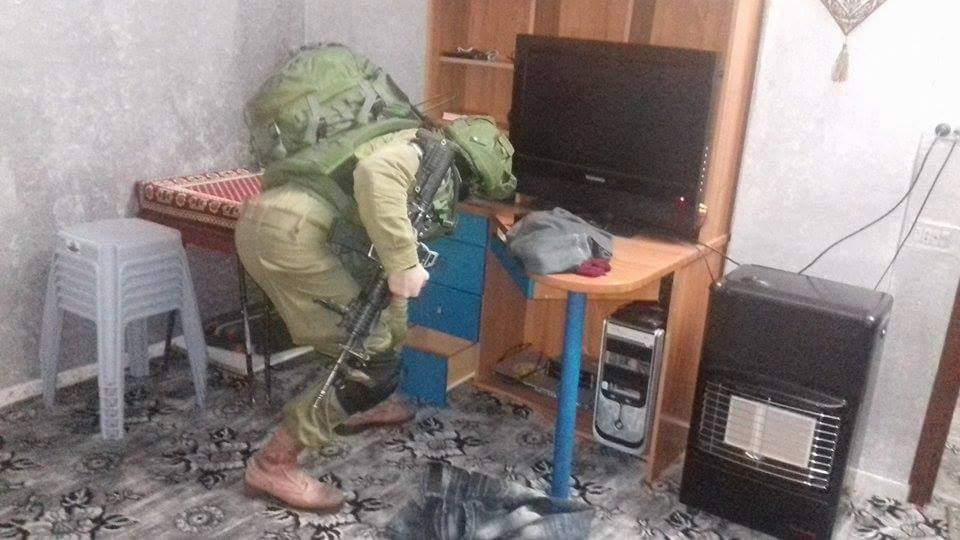Category: Video
-
The Palestinian civilians of Queitun are locked up by massive roadblocks and skunked for no reason
27th November 2015 | International Solidarity Movement, al-Khalil team | Hebron, occupied Palestine In the early morning of November 26th, 2015, just a few hours after training some 50 new soldiers for house-invasions, the Israeli occupation army put three massive roadblocks in Sida, a connecting street in the Qeitun neighborhood of Hebron H2 (Israeli controlled).…
-
18-year old boy arrested in occupied Hebron and international banned from the entire West Bank
26thNovember 2015 | International Solidarity Movement, al-Khalil team| Hebron, occupied Palestine On Thursday 26th November, at around 8 am, Israeli forces detained two young Palestinians boys at Quitoun checkpoint in occupied Hebron (Al-Khalil), allegedly throwing stones at the soldiers. On the way towards the police station where the Palestinian boys were taken by the Israeli…
-
Israeli forces continue to target human rights activists during the wave of house raids in Hebron
26th November 2015 | International Solidarity Movement, al-Khalil team | Hebron, occupied Palestine On the 17th of November, around one hundred and fifty Israeli soldiers advanced into Jabal Al-Rahma neighborhood – a neighborhood in the H1 area of Hebron (al-Khalil) just outside of the H2 area that is under Israeli military control. From 7.30pm until…



